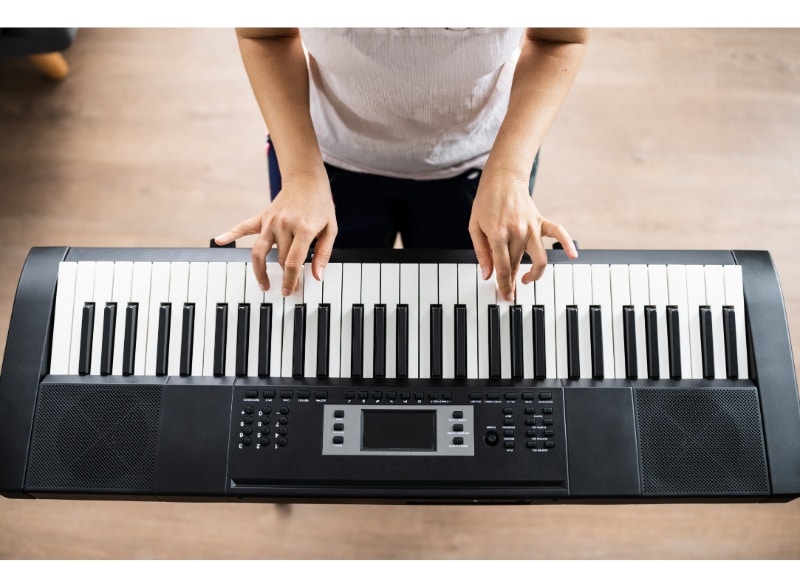Researcher of the Month
Sweet music! What impact does it have on young people’s development?
Did you know that teens listen to more music than any other age group? Many adolescents also learn music formally by participating in school-based and extracurricular programmes. In a recently published paper, our Researcher of the Month, Professor Beatriz Ilari and co-author, Dr Eun Cho, sought to establish the impact of one such programme on young people’s development, sense of school connectedness and hopes for the future.
Underpinned by a model called ‘positive youth development’, the study examines whether extracurricular music activities can help to enhance developmental assets in teens that are collectively known as the ‘5 Cs’; confidence, competence, compassion, connection and character. Music is an inherently social activity, especially for young people. It is used in social situations, increases contact between individuals, can ease interpersonal interactions and creates cohesion in a group of people. Research is mixed and evolving, but seems to support the notion that engagement with music correlates with more prosocial behaviours, kindness and empathy.
Summary
“Music is the closest thing to a time machine that we will ever have. When we want to transport ourselves into another time or place, we can listen to music or play our instruments, and feel those emotions. Being in the music program has helped me find myself, my peace, and my place in school.” (7th grade student)
Professor Ilari notes that a solid body of evidence associates prolonged participation in extracurricular activities with positive developmental outcomes. As well as developing specialised skills (in for example dance or sport), these activities can enhance cognitive and socioemotional skills, reduce boredom, and boost self-esteem and empathy. They may also help children develop leadership skills and mental toughness and can give them a sense of belonging. Engagement with music specifically is also associated with psychosocial and emotional wellbeing, self-regulation, executive functioning and community building. This particular study questions whether participation in a music learning programme that capitalises on youth musical preferences and student agency might function as a protective factor during the critical years of early adolescence.
The study evaluates the efficacy of the Virtual Middle School Music Enrichment (VMSME) programme. In 2020, as a response to educational challenges during the pandemic, a large instrument manufacturer started an accessible, online, extracurricular music programme aimed at young teens aged 12-14, in one of the largest school districts in the US. The programme is ongoing and has expanded to incorporate an in-person element for younger students. In the programme, students are provided with a free instrument which is theirs to keep and are given access to a music learning app called Fender Play, as well as group online music lessons with credentialed teachers, all free of charge.
The programme creators note that students are inspired by songs that they hear and want to learn and therefore focused on guided, active, “bite-size,” song-driven learning. Learning how to play an instrument is a complex skill that requires specialised instruction, so they aimed to provide relatable music teachers who worked with students from their first steps – how to hold an instrument – all the way through fundamental skills, chords and technique, using learning strategies personalised to each student.
In Professor Ilari’s study, 186 students from 52 schools in a large urban area participated in an online survey. The study sample was composed primarily of students who liked and were invested in music, most of whom enrolled in the VMSME programme. However, some also had other musical tuition, some studied music out of school, but not through VMSME, and others didn’t participate in any music education programme at all.
She found that students who participated in multiple forms of music education, for longer periods of time, reported having higher levels of competence (positive views of their actions in social, academic, cognitive and vocational areas) and felt more hopeful about their future than those who didn’t. Participation in extracurricular activities at school and liking music also predicted students’ levels of school connectedness. Her findings align with the idea that music programmes might help teens to regulate and work through emotions and engage in identity work, developing positive views of their selves and the future.
Implications
Implications for parents:
Remember that music tends to be very important to children and teens. Teens often develop identities around musical practices and preferences and draw conclusions about others from their musical likes. Coupled with the fact that engagement with music is linked to better emotional regulation and interpersonal relationships, initiating natural conversations about music can be a great way of opening up discussions about emotions. Where possible, providing children and teens with access to musical engagement, whether through formal face-to-face tuition, online learning, or simply as active listeners, is likely to be developmentally beneficial.
Implications for schools:
This study shows that music programmes may play a protective role in adolescence – food for thought when considering your extracurricular offerings. If you are a teacher who isn’t musically trained, try not to view this as a barrier to cultivating musical engagement in the classroom. Professor Ilari advises bringing music in to school, asking students what their favourite groups and songs are and initiating conversations about them. Why not try engaging with musical parents in your community to see if any are willing to share their skills at school?
This particular programme grouped children from different schools together in online lessons. Students were associating with others from varied social circumstances, ranging from extreme wealth to considerable disadvantage. Professor Ilari notes that this may have contributed to student social identity development as research shows that young teens develop more complex social identities and more positive attitudes toward out groups when they participate in extracurricular programmes that are diverse; a finding which could also inform school decisions about extracurricular activities.
Resources Created from and Related to this Research

Beatriz Ilari, PhD, Associate Professor and Chair of Music Teaching and Learning at the University of Southern California.
Professor Beatriz Ilari has conducted extensive research with infants, children and adolescents to examine the intersections between musical participation, child development, cognition and culture. A Brazilian native, Beatriz identifies with the Latin American communities of Southern California. Her research focuses largely on the musical experiences of Latino children and their families, in the home, at schools and in communities. Beatriz is a research fellow at USC’s Brain & Creativity Institute and collaborates regularly with colleagues from various fields in Brazil, Portugal, Spain, UK, US and Hong Kong. Her research has appeared in numerous journals and she is co-editor of the Routledge Companion to Interdisciplinary Studies in Singing – Volume 1. A violinist by training, Beatriz is a former early childhood and elementary music educator.






